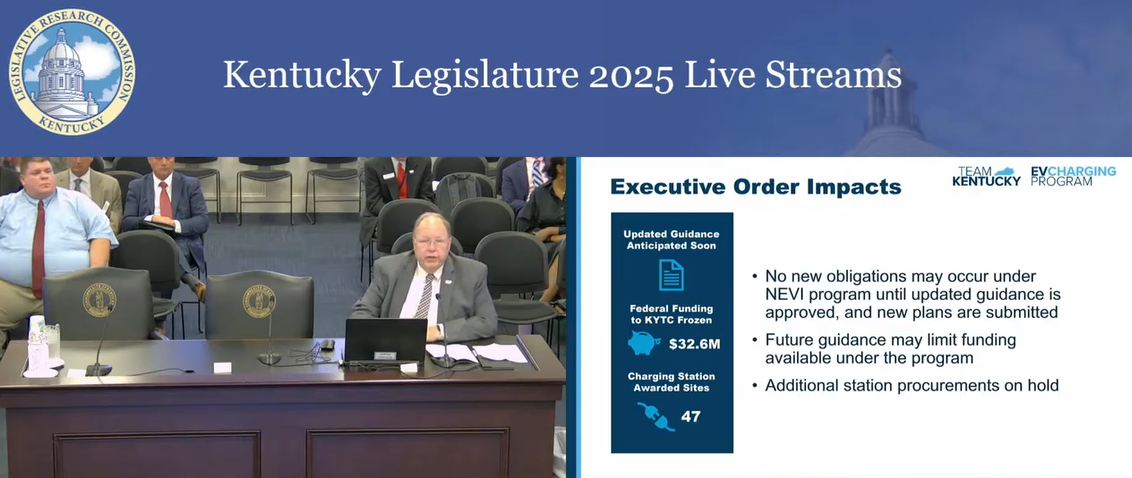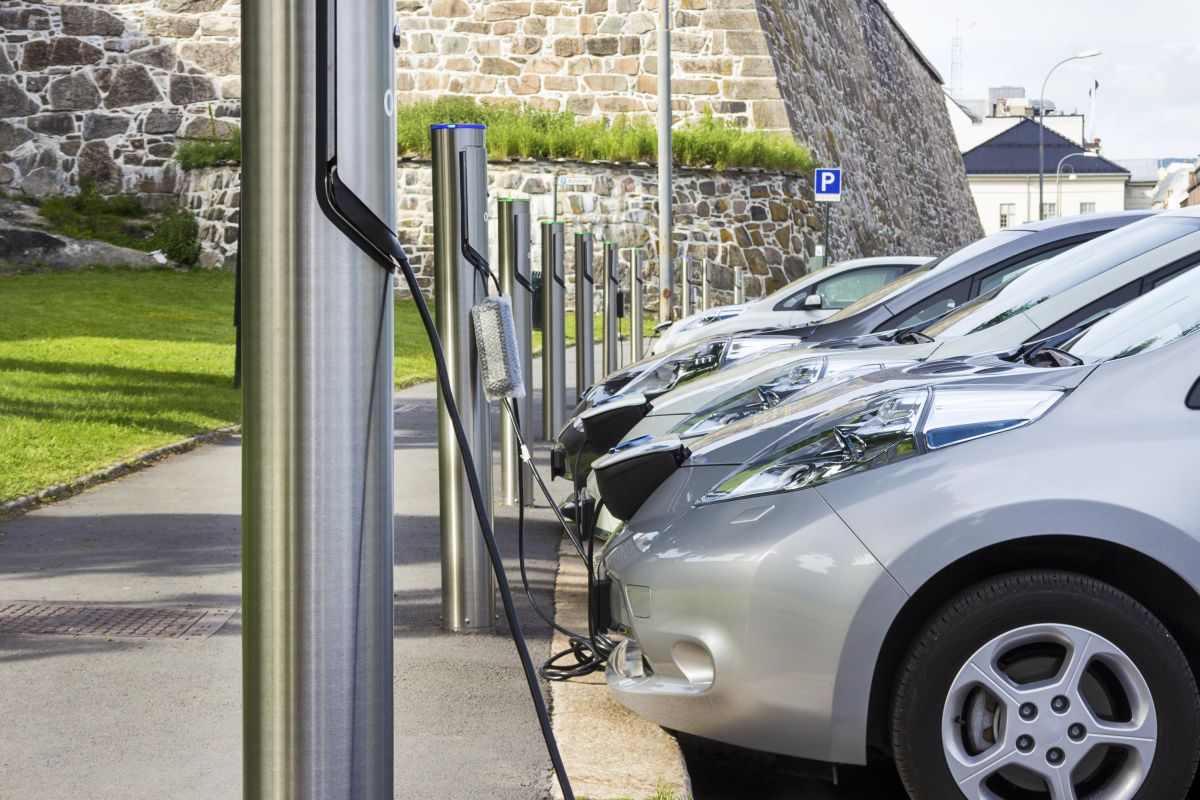The Trump administration’s January “Unleashing American Energy” executive order is delaying Kentucky’s plans to extend its electric vehicle (EV) charging network beyond the 47 stations already in the works, Deputy State Highway Engineer John Moore indicated during a July 15 hearing of the Kentucky Legislature.
That executive order directed the U.S. Department of Transportation (USDOT) to revisit a funding formula established in the 2021 Bipartisan Infrastructure Law to provide funding to states to install EV charging stations and develop an interconnected national charging infrastructure.
After the executive order, the Federal Highway Administration (FHWA) in February issued a memorandum revoking previous federal guidance for the National Electric Vehicle Infrastructure (NEVI) program and federal approvals of state plans. Further federal guidance for states to submit updated plans for approval is expected this summer, Moore said.
 John Moore speaking in a screenshot from the hearing livestream.
John Moore speaking in a screenshot from the hearing livestream.
“With the revocation of the plan approval, we are no longer able to obligate any additional NEVI funds until additional guidance comes out and we comply with the updated guidance,” Moore said. “In that memorandum from FHWA, the guidance was expected to come out in spring, it was indicated. We hear it's ‘any day now,’ but we've heard it's ‘any day’ for a couple weeks.”
Kentucky has secured $32.2 million in federal NEVI funding to deploy 47 total EV charging stations throughout Kentucky, Moore said during a hearing of the Kentucky Legislature Budget Review Subcommittee on Transportation. Construction on those sites will continue, powered by already obligated funds.
But the BIL allocated another $32.6 million to Kentucky to install additional charging ports, but those funds are frozen until forthcoming FHWA guidance is issued, according to Moore.
“We've had commitments from FHWA that [the $32.2 million in] funds is secured since they've been obligated and are not subject to reallocation,” he noted. “That being said, we do have $32.6 million that were allocated via the [BIL] to Kentucky that are currently frozen until we can update our guidance accordingly.”
Three BIL-funded Kentucky charging sites have already opened — in Richmond, Berea and Hazard — with two more scheduled to launch this summer, he added.
Private companies own, operate, and maintain the existing three sites and will do the same for the other 44 sites once built, Moore noted.
Kentucky expects to total 19,000 EVs registered in the state this year, which would be a 33% increase over last year, Moore said. That number rose 52% in 2024.
Idaho, Iowa and Nevada are among the other states that are pausing their processes to expand EV charging infrastructure because of USDOT’s cancelation of prior NEVI guidance and suspension of prior state plans.
The U.S. Senate’s fiscal year 2026 funding bill for transportation, currently pending on the floor, would instruct USDOT to issue updated guidance for the NEVI program no later than 30 days after enactment.
The BIL sets aside $5 billion total to update EV charging infrastructure across the country.
“Effective immediately, no new obligations may occur under the NEVI Formula Program until the updated final NEVI Formula Program Guidance is issued and new State plans are submitted and approved,” FHWA wrote in its February memo. “Instructions for the submission of new State plans for all fiscal years will be included in the updated final NEVI Formula Program Guidance.”














Brian Bradley